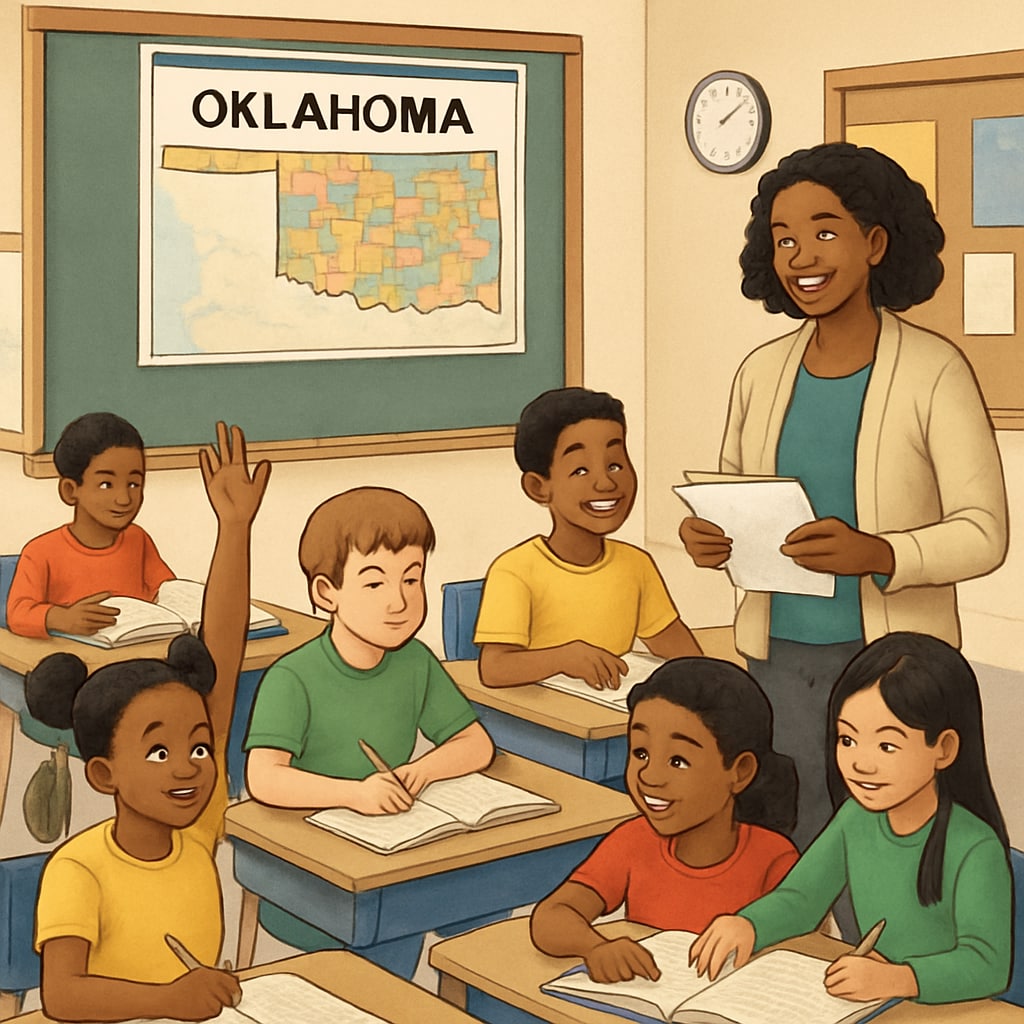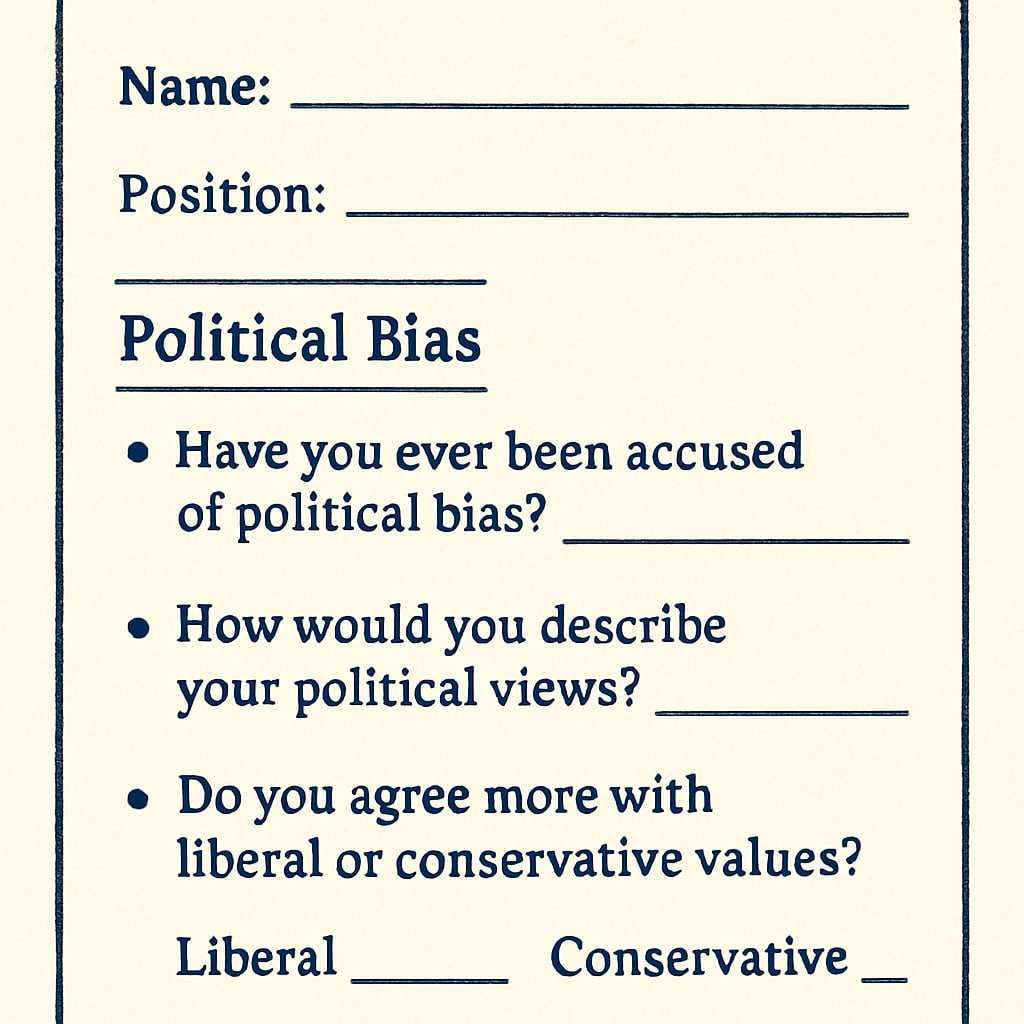Oklahoma’s controversial decision to implement a political bias test for out-of-state teacher applicants has sparked widespread debate. This policy, aimed at assessing the political leanings of educators before granting them teaching positions, has raised critical questions about the balance between education and political influence. Advocates argue the measure ensures alignment with state values, while critics warn of potential threats to educational freedom and diversity. As the U.S. faces increasing polarization, the implications of this policy could resonate far beyond state borders.
Why Oklahoma Implemented the Teacher Political Bias Test
Oklahoma’s political bias test is part of a broader effort to ensure that the state’s educators adhere to its cultural and ideological norms. Supporters claim that this is necessary to prevent the introduction of “radical” ideologies into classrooms and maintain alignment with what they consider traditional American values. However, opponents argue that the measure infringes on educators’ rights and risks turning schools into arenas of political control rather than places of diverse learning.
For example, critics cite concerns about the subjective nature of political bias tests, which often rely on ambiguous questions or predefined assumptions about political ideologies. These critics worry that such tests could unfairly exclude qualified teachers who simply hold differing views from the prevailing political climate in Oklahoma.

The Broader Implications for U.S. Education
This policy raises fundamental questions about the role of politics in education. If states begin implementing political bias tests, could this create a fragmented educational system where teaching standards vary drastically based on ideological preferences? Education in the United States has historically aimed to promote critical thinking, inclusivity, and open dialogue. Policies like Oklahoma’s bias test risk undermining these principles by prioritizing conformity over diversity.
Moreover, the move could discourage talented educators from applying for positions in states with restrictive policies. This brain drain could negatively impact the quality of education in such states, leaving students with fewer opportunities to learn from diverse perspectives. As a result, the policy may inadvertently harm the very students it aims to protect.

What Critics and Supporters Are Saying
Critics of the policy argue that it violates constitutional protections, particularly the First Amendment, which guarantees freedom of speech and expression. They believe that by requiring teachers to disclose their political beliefs, the state is imposing undue restrictions on personal freedoms and autonomy. Organizations like the American Civil Liberties Union (ACLU) have voiced concerns about the policy’s legality and potential misuse.
Supporters, on the other hand, contend that the test is a safeguard against political indoctrination in schools. They view it as a proactive measure to ensure that educators do not promote divisive or controversial ideologies to impressionable students. For instance, proponents often cite examples of alleged “bias” in curricula, using these cases to justify stricter oversight of educators.
However, questions remain about whether this policy is an effective or ethical solution to the perceived problem of political bias in education. Without clear and neutral standards for evaluating bias, the test risks becoming a tool for political gatekeeping rather than a means of improving education.
Potential Alternatives to Political Bias Testing
Instead of implementing politically charged tests, states could adopt alternative measures to ensure educational quality without infringing on individual freedoms. For instance:
- Professional Development Programs: Training sessions could help teachers navigate sensitive topics without imposing personal beliefs.
- Transparent Curriculum Standards: Schools can focus on developing clear, balanced curricula that promote critical thinking rather than ideology.
- Teacher Reviews and Feedback: Regular evaluations from students, parents, and administrators could offer insights into teacher performance without resorting to bias tests.
These approaches emphasize collaboration and inclusivity, fostering environments where educators and students can thrive without the shadow of political scrutiny.
In conclusion, Oklahoma’s political bias test for teachers has ignited a critical conversation about the intersection of education and politics. As debates continue, it is essential to consider how such policies align with the broader goals of education: to inspire, educate, and prepare future generations to engage thoughtfully with the world around them.
Readability guidance: Short paragraphs and clear subheadings improve readability; lists summarize key points; overuse of passive voice and long sentences has been avoided to maintain clarity.


